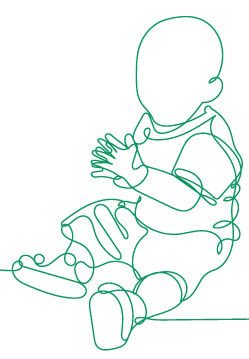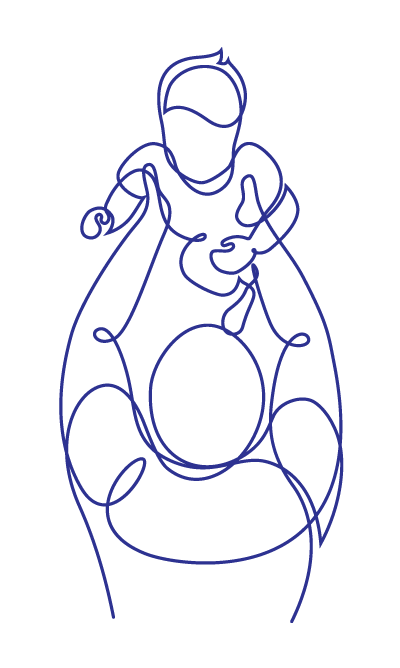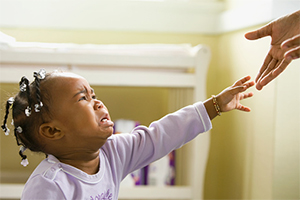Child Development
Give them the best start.
Explore Developmental Domains
How your child plays, learns, speaks and acts offers important clues about their development. It’s through everyday activities that you help your child grow and learn. Explore your child’s progress in the five developmental domains when you complete an Ages & Stages Questionnaire.
Developmental domains include:
Communication
Example: Do you remember your daughter’s first word or the first time she shook her head? She’s on her way to being a world-class communicator. Toastmasters here we come.
Gross Motor
Your child’s ability to use their arms, legs and other large muscles for sitting, crawling, walking, running and other activities.
Example: The first time your two-year-old kicked a ball and you broke down crying? That’s an example of gross motor skills. Time to sign them up for soccer.
Fine Motor
Example: Is your 9-month-old fascinated with cereal o’s? They’ll begin picking them up between their thumb and index finger (and promptly throwing them on the floor). Welcome to fine motor skills.
Problem Solving
Example: At age 4, your child might start telling you what he thinks is going to happen next in a book. He’s using problem-solving skills and his world experience.
Personal-Social
Example: If you can’t keep your six-month-old from obsessively looking in the mirror, that’s probably personal-social. They’re starting to recognize their own face. Is this where bathroom hogging begins?
Explore Developmental Milestones
How your child plays, learns, speaks, and acts offers important clues about your child’s development. Developmental milestones are things most children can do by a certain age.


Facts about child development
A child’s brain at birth contains billions of neurons, and 90% of it is developed by age 5. Support healthy brain growth by caring for and playing with your child.
Developmental challenges are normal. One in five children will experience some sort of developmental delay. If you notice something that seems off, speak up. YOU know your child best.
Taking action early matters when it comes to child development. Unfortunately, 70% of children with developmental challenges receive no assistance before age 5.
It’s normal for a child to walk as early as 9 months or as late as 18 months. Children develop at their own pace.
Children grow in five key developmental areas, or domains, which the Ages and Stages screening explores: communication, gross motor, fine motor, problem solving and personal-social.
Unless concerns have been identified, ongoing screening every 4-6 months is recommended through age 5½. It’s critical that parents continue to monitor their child’s development throughout the early years.
Only one of every four South Carolina children age 5 and under receives a developmental screening. Share this site with your friends and help us make universal screening a reality. It’s one more way we can give children a healthy start.











